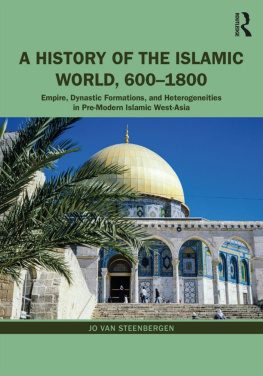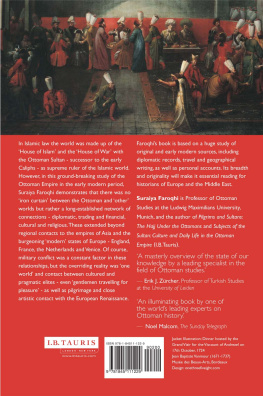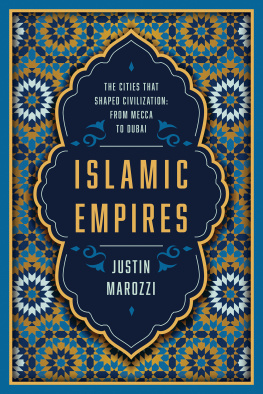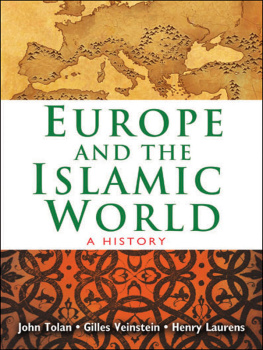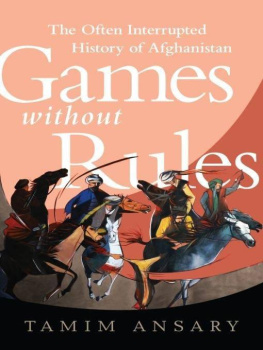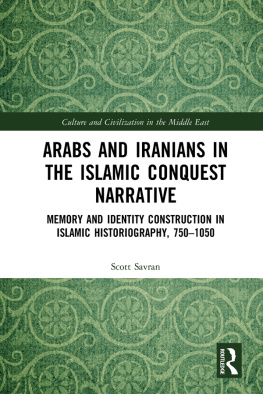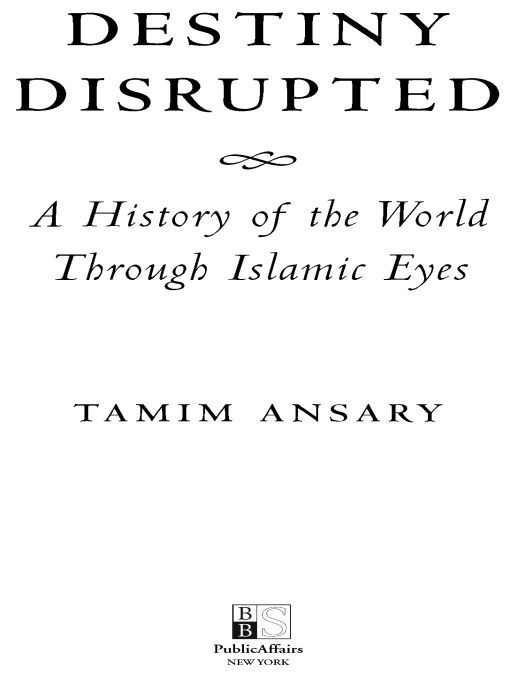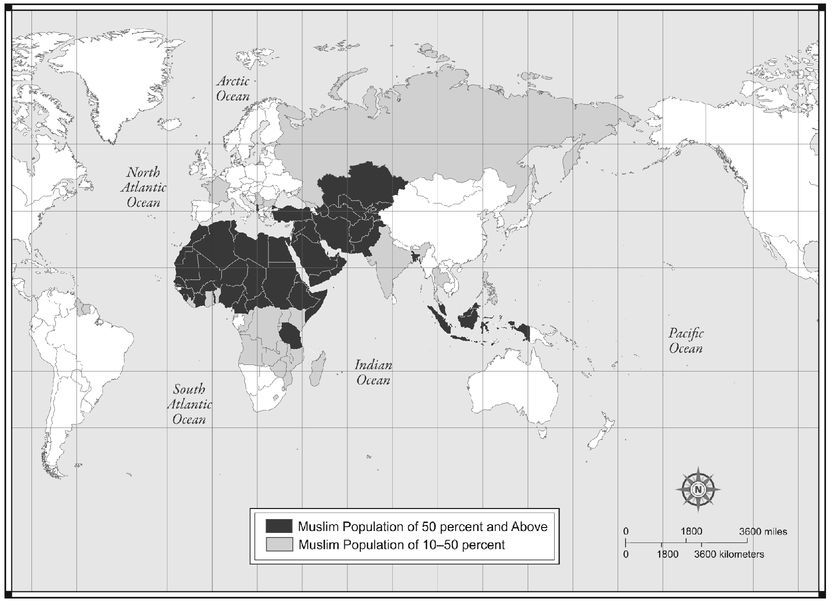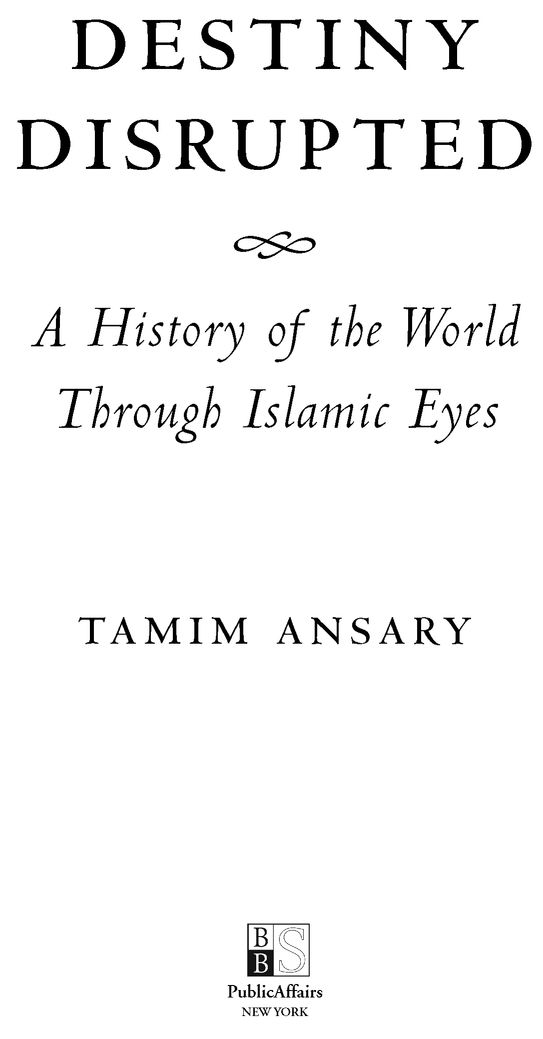Table of Contents
THE ISLAMIC WORLD TODAY
For Amanuddin and Terttu
NAMES AND DATES
Some writers are scrupulous about the system they use for transliterating Islamic names and words into English, insisting that one or another system is correct. I have to confess I am not among them. I have seen my own name spelled too many different ways in English to be picky. (People often ask me, which is correct, Ansari or Ansaryis it y or i? Well, neither, really: its the letter yaw.) Given the arbitrary nature of transliteration, my guiding principle in this book has been to go for the simplest spellings and the most recognizable reductions.
Also many Arabic names include a series of patronymics preceded by Ibn, meaning son of. Usually, I use the shortest form of the name by which a person is most commonly known. The profusion of unfamiliar names (and words) in this book will challenge many English-speaking readers; I wish to minimize such difficulties, so if a familiar form of a word or name exists in English, thats what I go with. Also, following a precedent set by Albert Hourani in A History of the Arab Peoples, I use the prefix al-the first time an Arabic name is used but drop it after that: al-Ghazali becomes Ghazali.
As for dates, two calendars apply to these events, the Islamic one and the so-called common era dating system, which actually derives from the Christian calendar. In the early decades after the birth of the Muslim community, I generally give the Islamic date (the number of years followed by AH which stands After the Hijra). I do so because I think that in this early period its useful to convey a feel for how many years have passed since the crucial events of Islam. Later in time, I slide over to the common era system, because thats the framework with which most readers are familiarand whats the point of giving a date if it doesnt place an event in context and situate it relative to other events?
INTRODUCTION
Growing up as I did in Muslim Afghanistan, I was exposed early on to a narrative of world history quite different from the one that schoolchildren in Europe and the Americas routinely hear. At the time, however, it didnt shape my thinking, because I read history for fun, and in Farsi there wasnt much to read except boring textbooks. At my reading level, all the good stuff was in English.
My earliest favorite was the highly entertaining Childs History of the World by a man named V. V. Hillyer. It wasnt till I reread that book as an adult, many years later, that I realized how shockingly Eurocentric it was, how riddled with casual racism. I failed to notice these features as a child because Hillyer told a good story.
When I was nine or ten, the historian Arnold Toynbee passed through our tiny town of Lashkargah on a journey, and someone told him of a history-loving little bookworm of an Afghan kid living there. Toynbee was interested and invited me to tea, so I sat with the florid, old British gentleman, giving shy, monosyllabic answers to his kindly questions. The only thing I noticed about the great historian was his curious habit of keeping his handkerchief in his sleeve.
When we parted, however, Toynbee gave me a gift: Hendrick Willem Van Loons The Story of Mankind. The title alone thrilled methe idea that all of mankind had a single story. Why, I was part of mankind myself, so this might be my story, in a sense, or at least might situate me in the one big story shared by all! I gulped that book down and loved it, and the Western narrative of world history became my framework ever after. All the history and historical fiction I read from then on just added flesh to those bones. I still studied the pedantic Farsi history texts assigned to us in school but read them only to pass tests and forgot them soon after.
Faint echoes of the other narrative must have lingered in me, however, because forty years later, in the fall of 2000, when I was working as a textbook editor in the United States, it welled back up. A school publisher in Texas had hired me to develop a new high school world-history textbook from scratch, and my first task was to draw up a table of contents, which entailed formulating an opinion about the overall shape of human history. The only given was the structure of the book. To fit the rhythm of the school year, the publisher ordained that it be divided into ten units, each consisting of three chapters.
But into what ten (or thirty) parts does all of time naturally divide? World history, after all, is not a chronological list of every damn thing that ever happened; its a chain of only the most consequential events, selected and arranged to reveal the arc of the storyits the arc that counts.
I tied into this intellectual puzzle with gusto, but my decisions had to pass through a phalanx of advisors: curriculum specialists, history teachers, sales executives, state education officials, professional scholars, and other such worthies. This is quite normal in elementary and high school textbook publishing, and quite proper I think, because the function of these books is to convey, not challenge, societys most up-to-date consensus of whats true. A chorus of advisors empanelled to second-guess a development editors decisions helps to ensure that the finished product reflects the current curriculum, absent which the book will not even be saleable.
As we went through the process, however, I noticed an interesting tug and pull between my advisors and me. We agreed on almost everything exceptI kept wanting to give more coverage to Islam in world history, and they kept wanting to pull it back, scale it down, parse it out as side-bars in units devoted mainly to other topics. None of us was speaking out of parochial loyalty to our own civilization. No one was saying Islam was better or worse than the West. All of us were simply expressing our best sense of which events had been most consequential in the story of humankind.
Mine was so much the minority opinion that it was indistinguishable from error, so we ended up with a table of contents in which Islam constituted the central topic of just one out of thirty chapters. The other two chapters in that unit were Pre-Columbian Civilizations of the Americas and Ancient Empires of Africa.
Even this, incidentally, represented expanded coverage. The best-selling world history program of the previous textbook cycle, the 1997 edition of Perspectives on the Past, addressed Islam in just one chapter out of thirty-seven, and half of that chapter (part of a unit called The Middle Ages) was given over to the Byzantine Empire.
In short, less than a year before September 11, 2001, the consensus of expert opinion was telling me that Islam was a relatively minor phenomenon whose impact had ended long before the Renaissance. If you went strictly by our table of contents, you would never guess Islam still existed.
At the time, I accepted that my judgment might be skewed. After all, I had a personal preoccupation with Islam that was part of sorting out my own identity. Not only had I grown up in a Muslim country, but I was born into a family whose one-time high social status in Afghanistan was based entirely on our reputed piety and religious learning. Our last name indicates our supposed descent from the Ansars, the Helpers, those first Muslim converts of Medina who helped the Prophet Mohammed escape assassination in Mecca and thereby ensured the survival of his mission.


